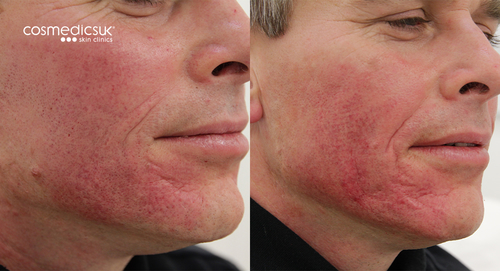Acne can leave scars, and scarring acne can happen when the acne lesions are not properly treated or dealt with. This can lead to permanent marks or deep depressions on the skin that can stay with you for a lifetime if they are not taken care of appropriately. If you are interested in learning more about scarring acne and how it is treated, you should contact your dermatologist. Dermatologists can perform skin exams and recommend treatments for this type of acne. They may also be able to provide you with information about scarring acne that you would not otherwise be aware of.
Acne scars can result from either acne vulgaris or cystic acne. Your dermatologist can help you determine which one of these you have. It is important to treat both types correctly so that the scars do not become worse than they would be if you just had acne. Acne vulgaris tends to involve pimples that are red and inflamed. Cystic acne, on the other hand, involves cysts and nodules that can damage skin and cause permanent marks or disfigurement.
The most common over-the-counter treatment for acne involves benzoyl peroxide creams, lotions, and other products. These are usually referred to as topical medications. They work by cleaning off your face in order to allow the acne lesions to heal. Topical medications are effective for some people, but they may have limited effectiveness with pitted scars, because the pits tend to be smaller and lack the oily layer that helps acne treatments work.
If your acne does not respond to topical treatments, or you are concerned that your acne could cause permanent damage to your skin, you may want to consult with a dermatologist. Many times, acne causes scarring as a result of the pore becoming too dry or too inflamed. For this reason, the dermatologist will usually recommend treating your acne with prescription drugs, such as isotretinoin. This drug works by shrinking the sebaceous glands, which is what causes the pimples and blackheads. It is an effective form of treatment, especially for those with more severe acne.
However, if your acne is less extreme and does not involve excess inflammation, there are other options that your dermatologist may recommend. One of these options is a natural remedy for acne scars. Specifically, your dermatologist may recommend herbal treatments, such as white peony extract. This extract has been shown to help reduce scars caused by acne, even though it is not known how it does so. Some studies indicate that the acne scars are partially due to the antioxidants found in white peony extract, rather than due to the actual antioxidant properties.
For those with more severe types of acne, your dermatologist may recommend surgical excision as a method of scar removal. In this procedure, your dermatologist will use a laser to remove small pieces of skin. While some people are wary of having their scars surgically removed, there are also many who find the removal of pits and dead skin cells to be a pleasant relief. Ultimately, however, it is up to you to decide whether or not these procedures are necessary to you.
There are other scar treatment options available for those with deeper scars and unsightly scarring. One of these options is called dermabrasion. In essence, this procedure involves removing the top layer of the skin (including the depressed portion of your pits and dead cells) with a fine piece of wire or a diamond plate.
Finally, there are a number of over the counter products that can be used for reducing the appearance of ice pick scars and boxcar scars. These products are typically topical solutions that contain salicylic acid, which is similar to the acid found in toothpaste. (Many of these products are available without a prescription; however, consulting with a doctor is advised for any individual who is considering treatment with these solutions.) The acid is applied to the scar with the use of a cotton swab or, in more serious cases, a pair of gloves. Typically, results can be seen in as little as two weeks.
